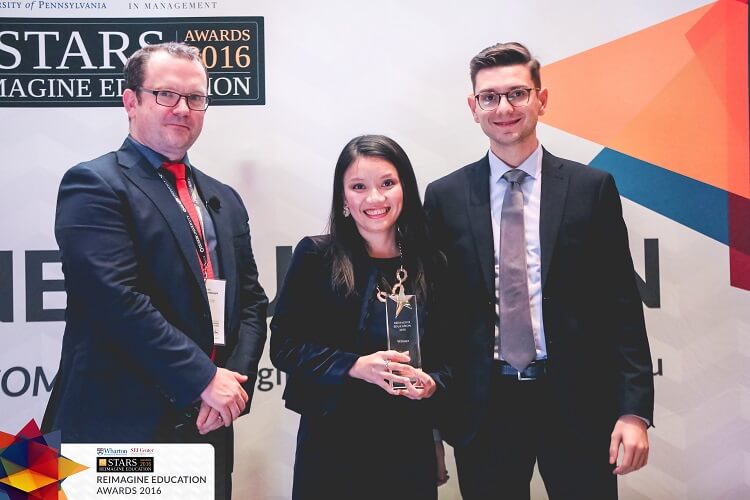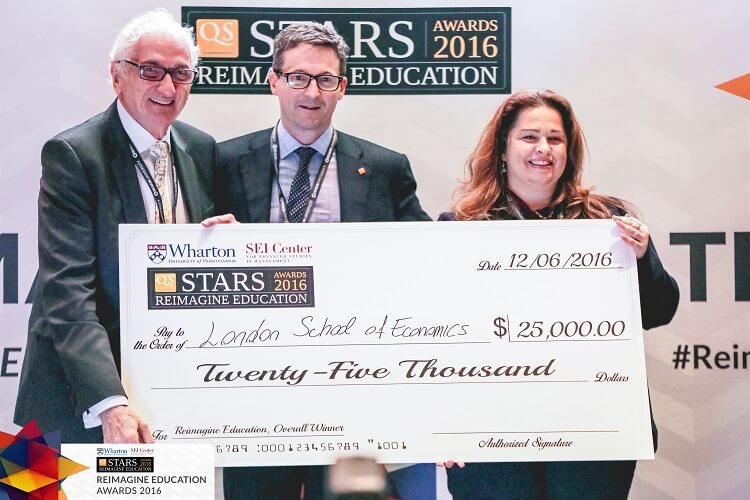REIMAGINE NEWSLETTER: ISSUE 4
INTRODUCING: EDNEWS DAILY
The period between the closing of December’s conference and the springtime opening of the annual Reimagine Education competition always permits a period of reflection, and a chance to consider how we can best implement the lessons learned over the previous competition/conference cycle. This year has been no different, and the past three months have been spent considering how best to reimagine our own application process.
One of the most encouraging aspects of running this competition is seeing the range and scope of submissions to the competition. Reimagine has attracted applications from startups to established ed tech companies – Duolingo were among last year’s applicants – and from early-stage research to late-stage projects.
It’s become clear to us, as we receive feedback from applicants and consult our own Advisory Board, that our application criteria needed an extra degree of subtlety. Attempting to compare the value of Duolingo – a product with over 100 million users – with a project awaiting its first beta-test was always going to require an adaptive application process.vvvv

This is what we’ve introduced this year. This year’s application process will separate research projects created within the university, college, or school space from ventures that begin their life within the corporate space. This is done in order to better account for the fact that academic research papers – transformative as they might be within their circles – typically have a lower reach, and raise far less capital, than corporate ventures.
We’ve then allowed applicants to decide whether their project is an ‘Early Stage’ or ‘Mature’ project, with separate judging criteria to be applied as a result of the applicant’s decision. Our enhanced application form will provide applicants with all of the guidelines necessary to dictate their decision.
Reimagining your options
Thus, applicants will initially choose one of four options:
- Academic – Early Stage;
- Academic – Mature
- Venture – Early Stage
- Venture – Mature.

Here, ‘Venture’ serves as an umbrella term for educational technology products and initiatives, social enterprises, educational foundations, and all other projects that are designed to be profit-making.
The differences between our judging criteria will be available on our website soon. However, the primary difference is that Early-Stage projects will be judged on ‘Initial Research/Feasibility Analysis’ rather than ‘Engagement’.
A second difference is ‘Impact’ will be worth 30% of a project’s final score for ‘Mature’ projects. It is worth 10% of final score for projects categorized as ‘Early Stage’. However, our judges reserve the right to recategorize projects at their discretion.
We believe that these changes will ensure that all applicants can submit their work safe in the knowledge that the judging process is one that provides all submissions with a level playing-field, and that late-stage work will not receive undue advantage.

Awards
A little under a month before last year’s application cycle officially closed, Pokemon Go was released into the world, bringing the potential of augmented reality to a mass audience. Of course, the game represents the tip of the iceberg as far as AR – and its sibling, Virtual Reality – are concerned. One line of inquiry promising to bear fruit for any educational innovator is that which examines how VR and AR can change education.
Therefore, we’ve added one new award to this year’s line-up: Virtual Reality/Augmented Reality. This award will be given to the product, research, or pedagogy that best uses virtual reality or augmented reality to improve teaching and/or learning.
The final list of 16 Category Awards runs thus:
- E-Learning;
- Hybrid Learning;
- Presence Learning;
- Teaching Delivery;
- Learning Assessment;
- Sustainability;
- Nurturing Employability;
- Ethical Leadership;
- K12;
- ICT Tools for Learning & Teaching;
- ICT Support & Services;
- Best Educational App;
- Digital Content;
- MBA & Executive Education;
- Virtual Reality/Augmented Reality.
- Cultivating Curiosity Award.

